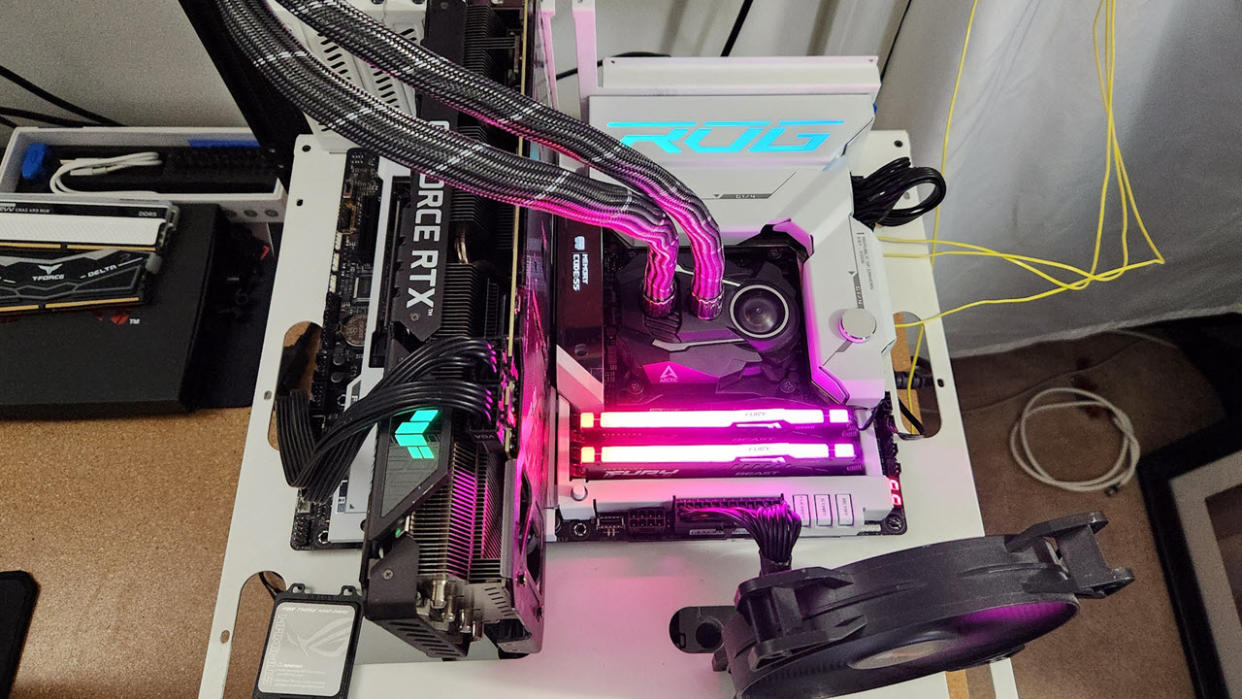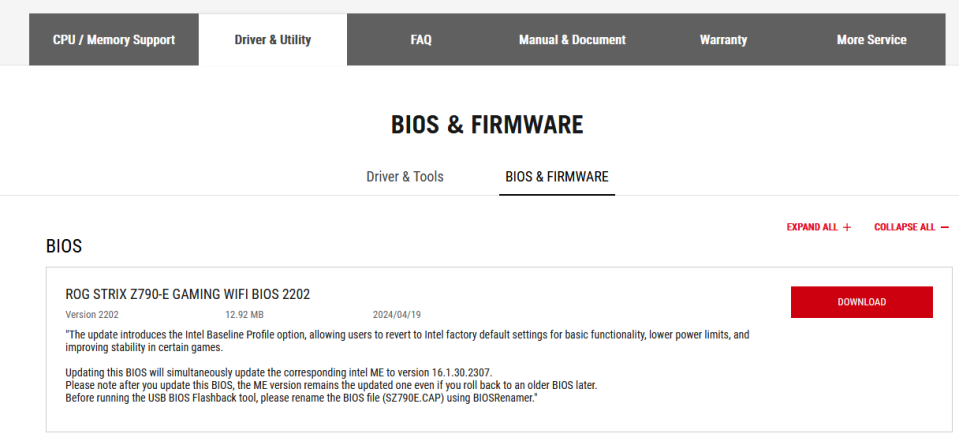New firmware addresses Intel CPU gaming instability — Asus Intel Baseline Profile fixes crashing on Raptor Lake and Raptor Lake Refresh chips

Asus released a new BIOS that adds a setting aptly named 'Intel Baseline Profile,' which switches from the motherboard's default settings to the ones recommended by Intel. It is in response to a widespread crash and another instability issue with certain games using Unreal Engine 5, precisely when it initiates shaders during the loading screen. With this setting, those with Intel 13th and 14th-generation CPUs should have stable gameplay. Once other vendors do the same, they may permanently address the issue.
Asus put up a separate page linking its respective motherboards with Z790, B760, and H770 chipsets towards the new BIOS for easy reference. The BETA BIOS listing specifies that this profile reverts to Intel's default setting, which involves lowering power limits. As a result, it seems to be addressing this nuisance.
Over the months, users found strange crashes and random BSOD while playing games using Unreal Engine 5, which many eventually narrowed down to the CPU settings used by motherboard vendors. The motherboards from multiple vendors used a very high power limit, allowing the CPU to pull higher power with some safeguards turned off. Many users experienced various issues, including 'Out of memory' issues with VRAM. Upon investigation, the crashes happen when it loads the initial shader compilation during the loading screen.
While this affects CPUs from both generations, many complaints are from users with Core i9-13900K and Core i9-14900K, Core i7-14700K, and Core i7-13700K. The instability issue plagued games made by developers like Gearbox and Fatshark, which led to many developers recommending downclocking these CPUs. According to our investigation, multiple games crashed over 90% of the time during the shader compiling process despite having stock settings set in their BIOS. It was getting clear that the blame was not on the games or the engine itself.

While there were many plausible explanations for this issue, the cause was the aggressive settings motherboard vendors were using by default. Asus' note about its beta BIOS suggests lowering the power limit and using Intel's settings. If it is that simple, it's simply a matter of time before all motherboard vendors follow suit.
While the fix is appreciated, one would ask about the necessity of having such an aggressive setting enabled out of the box without having the function to revert to Intel's settings should a crash occur. That setting enabled by default to squeeze an extra morsel of performance has no value if it crashes when it shouldn't- or worse. Not all CPUs can easily accommodate such settings; hence, tweaking a 'one-size-fits-all' profile to the extreme is not a good idea.
Regardless, some, if not all, of these CPUs have been recommended for gaming, at times bundled with a motherboard for a good deal. It's also best if respective motherboard vendors flash newly manufactured motherboards with such BIOS that address this problem from day 1.

